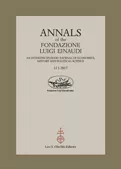The 1970s were dotted by tension and infighting between Western Europe and the United States, particularly in the wake of the economic crises sealing the fate of three decades of almost uninterrupted growth. Lack of confidence in the American willingness and capacity to guide the world economy combined with the Vietnam War and the Watergate scandal undermined the US prominent role within the Atlantic alliance. One consequence was a bolder Europe willing to experiment new solutions to the problems of the era. It was against this backdrop that new seeds for ambitious European plans on the aerospace fields were planted. This study shows how previous European attempts to create an independent access to space had been hampered by industrial, financial, and political policies of byzantine complexity, due to vast array of requests coming from the European member states. A first concrete step was made in 1973 during the 6th European Space Conference in Brussels by promoting new space programs, including the Ariane launcher and the creation of ESA. The involvement in such a conference of different social actors, such as government officials, scientists, and representatives of European industries, was conducive to the efforts to increase the member states’ awareness of the financial, political, and social gains that would result from the Europeanization of space. The focus of this analysis are the debates among these actors concerning Ariane as a pivotal topic for achieving Europeanization of space. First, this work intends to demonstrate why the debates on Ariane developed for the first time during the early 1970s. It argues that they were born out of the necessity for European countries to overcome serious difficulties in competing in a US dominated aerospace market without a pooling of resources. Second, it shows how technological alternatives and possibilities proposed by the network of scientists defined the boundaries of the policy choices available at the national and international levels. Finally, by looking at the official records, industrial agreements, and oral interviews, this analysis aims to understand whether and how cooperation in space and technology fostered the European integration process and the Europe that has yet to come.



